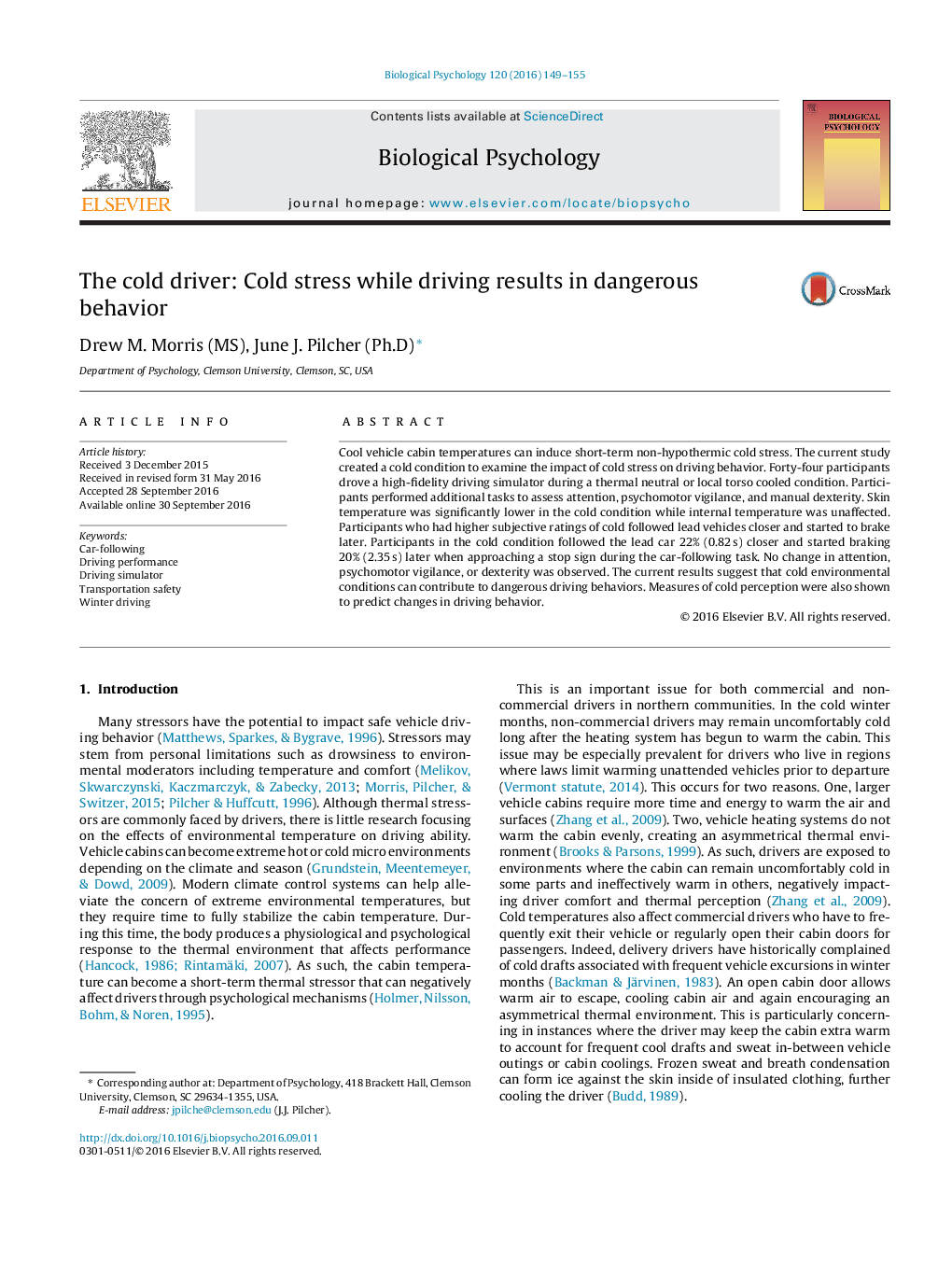| Article ID | Journal | Published Year | Pages | File Type |
|---|---|---|---|---|
| 7278382 | Biological Psychology | 2016 | 7 Pages |
Abstract
Cool vehicle cabin temperatures can induce short-term non-hypothermic cold stress. The current study created a cold condition to examine the impact of cold stress on driving behavior. Forty-four participants drove a high-fidelity driving simulator during a thermal neutral or local torso cooled condition. Participants performed additional tasks to assess attention, psychomotor vigilance, and manual dexterity. Skin temperature was significantly lower in the cold condition while internal temperature was unaffected. Participants who had higher subjective ratings of cold followed lead vehicles closer and started to brake later. Participants in the cold condition followed the lead car 22% (0.82Â s) closer and started braking 20% (2.35Â s) later when approaching a stop sign during the car-following task. No change in attention, psychomotor vigilance, or dexterity was observed. The current results suggest that cold environmental conditions can contribute to dangerous driving behaviors. Measures of cold perception were also shown to predict changes in driving behavior.
Related Topics
Life Sciences
Neuroscience
Behavioral Neuroscience
Authors
Drew M. MS, June J. Ph.D,
